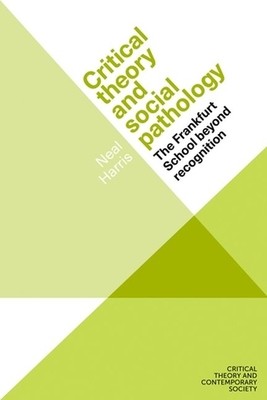
- We will send in 10–14 business days.
- Author: Neal Harris
- Publisher: Manchester University Press
- ISBN-10: 1526154730
- ISBN-13: 9781526154736
- Format: 15.6 x 23.4 x 1.3 cm, kieti viršeliai
- Language: English
- SAVE -10% with code: EXTRA
Reviews
Description
In the neoliberal world of the twenty-first century, the progressive academy urgently needs a vehicle for normative social research. Critical theory once answered this call, but today its programme is in crisis. The 'pathologies of recognition' approach, popular among contemporary critical theorists, aids neoliberalism rather than challenging it, in part because it is unable to grasp the structural nature of power.
To offer an alternative, this book returns to the work of Erich Fromm and Herbert Marcuse, using it as the basis for a revivified social theoretical foundation. As the first generation of critical theorists knew, thought itself can be reified, our imaginations debased, and our desires artificially induced. We need to think beyond recognition and embrace a more potent and aggressive form of social critique, true to the founding spirit of the Frankfurt School.EXTRA 10 % discount with code: EXTRA
The promotion ends in 22d.02:13:05
The discount code is valid when purchasing from 10 €. Discounts do not stack.
- Author: Neal Harris
- Publisher: Manchester University Press
- ISBN-10: 1526154730
- ISBN-13: 9781526154736
- Format: 15.6 x 23.4 x 1.3 cm, kieti viršeliai
- Language: English English
In the neoliberal world of the twenty-first century, the progressive academy urgently needs a vehicle for normative social research. Critical theory once answered this call, but today its programme is in crisis. The 'pathologies of recognition' approach, popular among contemporary critical theorists, aids neoliberalism rather than challenging it, in part because it is unable to grasp the structural nature of power.
To offer an alternative, this book returns to the work of Erich Fromm and Herbert Marcuse, using it as the basis for a revivified social theoretical foundation. As the first generation of critical theorists knew, thought itself can be reified, our imaginations debased, and our desires artificially induced. We need to think beyond recognition and embrace a more potent and aggressive form of social critique, true to the founding spirit of the Frankfurt School.

Reviews